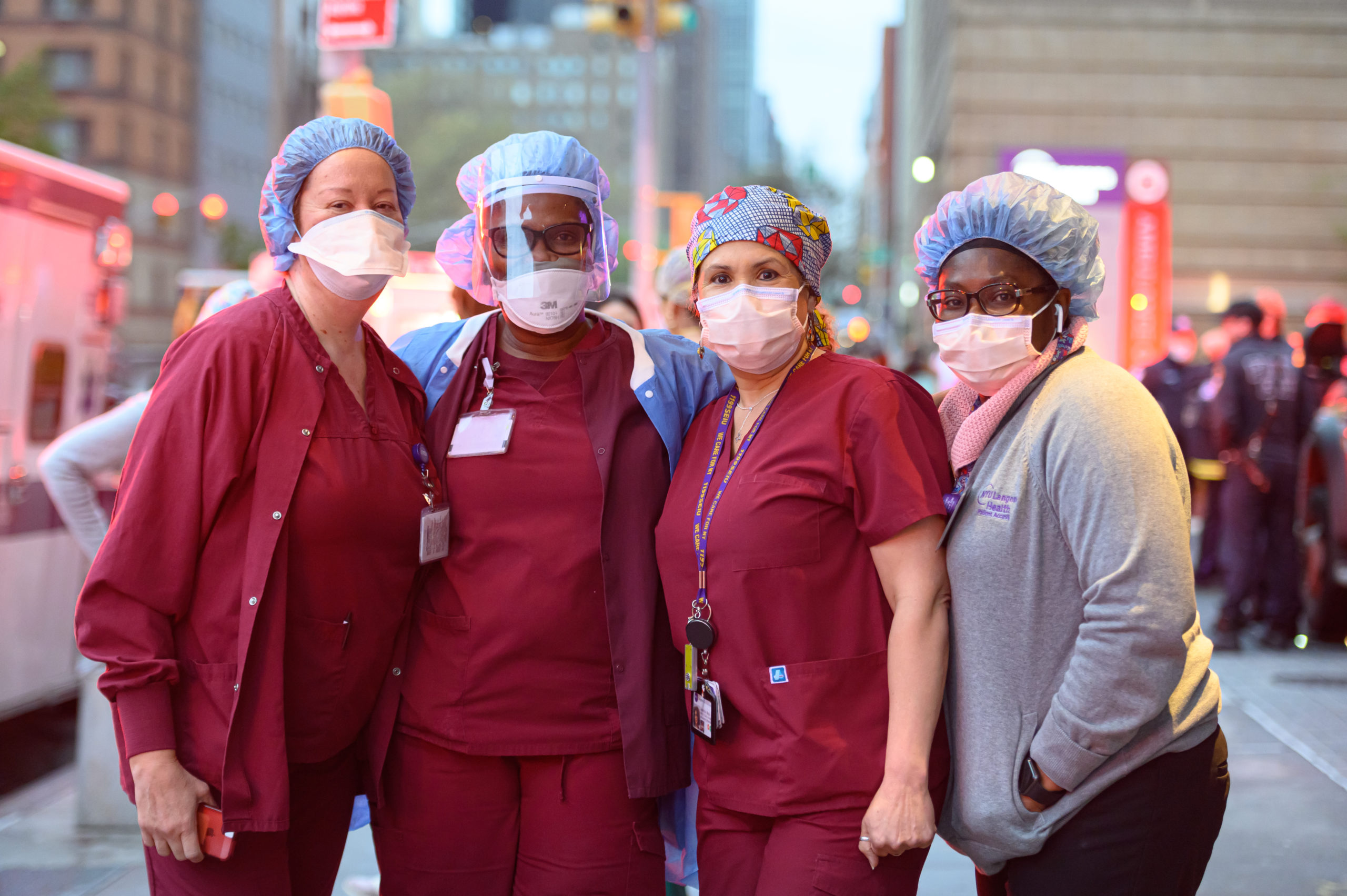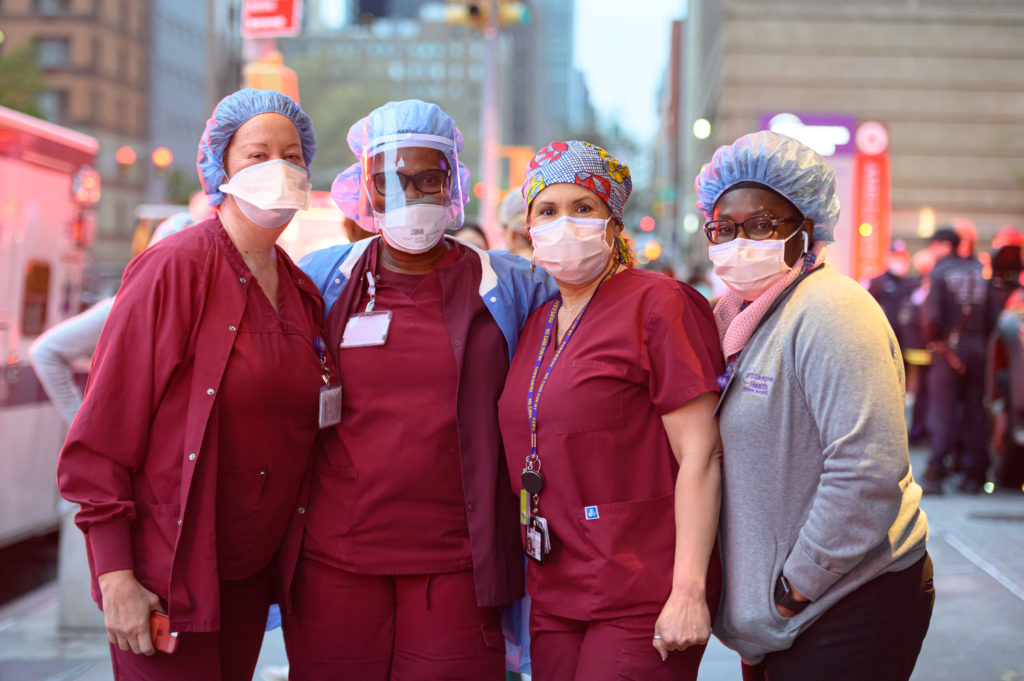Introduction
2020 marked the beginning of a global pandemic that has ravaged the globe and altered all of our lives. While COVID-19 has impacted everyone, some of us have been disproportionately – and oftentimes irreversibly – impacted. The virus has exposed fault lines wrought by centuries of discrimination: today, Black Americans are dying at twice the rate of white Americans of the virus, and Indigenous people are, according to one study, 3.5 times as likely as white Americans to contract COVID-19. Latinos have also disproportionately borne the brunt of the novel coronavirus and their community has suffered with both high infection and death rates. Essential workers in many sectors, including the healthcare sector, have been vital to our pandemic response, yet have been treated as disposable and faced reprisal for organizing against the unsafe workplace conditions to which they’re being exposed. Many “essential” jobs in the United States have been filled by immigrants, who have been systematically excluded from COVID-19 response and scapegoated for the dire economic toll the virus – and a bungled government response – have taken. In the U.S., authorities have broadly failed to provide sufficient relief for those most impacted. As vulnerable communities navigate the public health crisis, their suffering has too often been compounded by difficulty making rent, accessing healthy food, preventing utility shutoffs or securing employment. Leaders around the world have treated the virus as license to pursue authoritarian tactics that abuse human rights and fail to preserve public health, including mass surveillance that unjustifiably curtail people’s privacy rights.
Just as COVID-19 has laid bare legacies of discrimination, it has also demonstrated our profound interdependence and the importance of collective, evidence-based policies to lift us up as we recover from this devastating period. At home, it is long past time for the United States to guarantee healthcare as a human right through the provision of universal healthcare that protects all of us, not just those who can afford to pay for it. Internationally, the United States must reverse its inexcusable decision to withdraw support for the World Health Organization, whose mandate will be critical to a coordinated, global COVID-19 recovery, and it must lead the charge in ensuring that the poorest countries – which have been economically devastated by COVID-19 – can receive the debt relief they desperately need.

